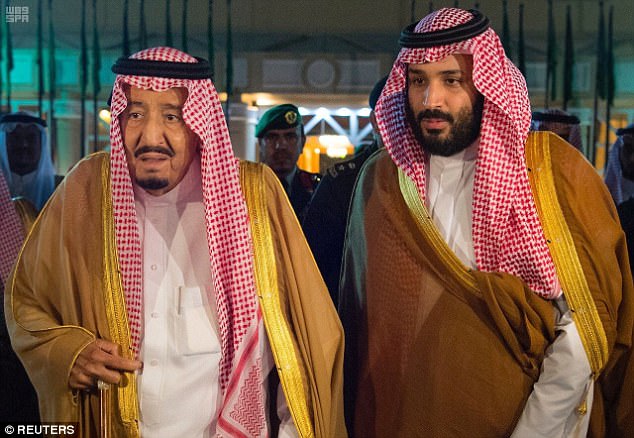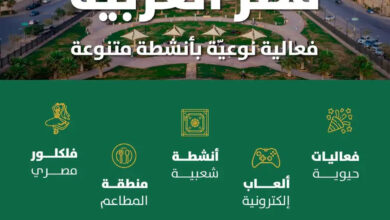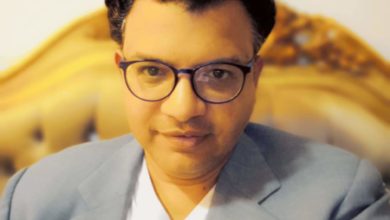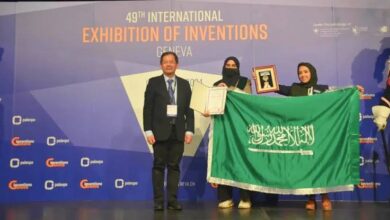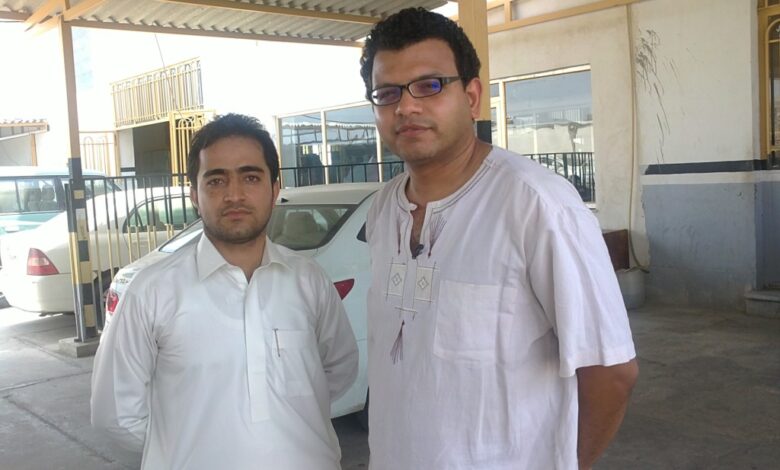
Ahmed Moustafa writes
From my chronicles of filming the documentary “The Sunnis in Iran,” which I had the honor of presenting and writing the text in 2013 and producing in 2014. I certainly hope to repeat the experience of being present and presenting other documentaries in other countries.
We embarked on a lengthy journey, traversing the vast expanse of the southern Khorasan province, until we finally arrived at the Sistan and Baluchestan governorate. This particular destination held great significance in our investigative endeavor, “Sunnis in Iran,” as it served as a border province shared by Iran and Pakistan, two major Islamic countries. Our first day in the city of Zahedan brought an unexpected encounter with the judge, a young man who possessed a master’s degree in Law. Judge Mohamed Murthy, who assumed his position approximately seven years ago, astutely acknowledged that there exists no distinction between a Sunni and Shiite judge. For a judge, the paramount duty is to safeguard the rights of the people. Having resided in this region for seven years, Judge Mohamed attested to the absence of conflicts between Sunnis and Shiites. Given that the majority of the population in this governorate are Sunnis, instances of intermarriage, lineage, and even marriage between individuals of different sects are not uncommon. Throughout his tenure, Judge Mohamed has witnessed the emergence of terrorist incidents in the area and has diligently worked towards reconciliation and problem-solving. He further acknowledged that the state authorities have explicitly prohibited the denigration of any sacred beliefs or values, extending beyond the boundaries of Sunni-Shiite relations. In his capacity as a judge, he does not consider sectarian affiliation or religious background. Justice, in its true essence, is blind and treats all citizens as equals. One significant incident that tested this judge’s commitment to impartiality was a phone competition organized by the Irancell company, which involved sectarian satire. Despite his Shiite background, Judge Mohamed imposed a legal penalty on the company, condemning their actions as foolish and discriminatory.
Afterward, we proceeded to meet with the deputy governor of Zahedan, Mr. Hamid Ali Mubaraki, who possesses a master’s degree in local administration and hails from a Sunni family. He acknowledged the significant sacrifices made by both Sunnis and Shiites in the governorate to combat terrorism, given its sensitive location near the border with Pakistan. Mr. Mubaraki emphasized that Sunnis do not face any persecution, as evidenced by their attainment of high-ranking positions within the state. He further highlighted that the constitution safeguards the rights of all citizens, and internal laws reinforce this protection. Additionally, Mr. Mubaraki informed us that the governorate boasts a substantial population of approximately 2.6 million people, with 1.6 million Sunnis and around 750 thousand Shiites. The governorate is divided into approximately 60 municipalities, and while 10% of senior officials are Sunnis, this is not due to Shiite dominance. Rather, it is attributed to a lack of suitable expertise among the Sunni community. Furthermore, the governorate is home to nine government universities. Regarding citizen empowerment, Mr. Mubaraki discussed the role of banks in providing soft loans to individuals. Moreover, the majority of municipalities and villages have access to gas, thanks to the governorate’s proximity to the border and the presence of a considerable number of foreigners from Pakistan and Afghanistan. Despite entering, sometimes illegally, these individuals are treated with respect, despite their violation of transportation regulations. Due to the affordability of prices within the governorate, a citizen can sustain a livelihood with an income of approximately $50 per month (100-150 thousand tomans).
Then we had a meeting with Mr. Ismail Hussein, the Mayor of the Municipality, who affirmed that the primary factor in selecting candidates for all positions is their competence and academic qualifications. The municipality consists of 40% Sunnis and 60% Shiites, as citizenship is the determining factor here. Even in the elections for the Municipal Shura Council, the numerical majority of a particular sect holds no significance, as the criterion is to serve the people, regardless of whether they are Sunni or Shiite.
On that very day, we paid a visit to one of the mass graves where the martyrs of a terrorist attack, carried out by “Abdul Malik Al-Riki and his accomplices,” were buried. The attack took place on a bus that was carrying approximately 25 individuals, most of whom were Sunnis, in 2004, 30 km north of Zahedan. This serves as a reminder that terrorism is not affiliated with any specific religion or sect, as the perpetrator was Sunni and the majority of his victims were also Sunni. The intended target of the bombing was “the Governor,” who miraculously changed his route and narrowly escaped this horrific incident, which tragically claimed the lives of 12-year-old children, as evidenced by the photos and birth dates of the victims.
The following day, we had a meeting with Mr. Muhammad Jahantiri, who is the Director General of Vocational and Craft Training. He has a master’s degree in education planning and holds an official position in the Education and Education Organization. Mr. Jahantiri is responsible for overseeing 24 vocational training centers located throughout the Sistan and Baluchestan province. These centers offer a variety of teaching methods and crafts, totaling 4,000 and 320 respectively. The centers cater to approximately 35,000 individuals, including a minimum of 15,000 women. Additionally, the center supervises around 200 civil society organizations, with approximately 13,000 women and 7,000 young men having graduated through agreements with the center. The training costs are covered by the individuals themselves. The center’s services also extend to the army, universities, and prisons through community service centers. Furthermore, there are agreements in place with banks to provide small, interest-free loans amounting to about 5 million tomans in the long term. These loans aim to support approximately 10,000 people, with the total number of loans available in banks reaching about 50 billion tomans. All of these efforts are in accordance with the guide’s instructions to support women. It is important to note that the center provides training to all citizens, regardless of their religious affiliation, with the sole purpose of serving society.
On that very day, we had a meeting with the Baloch Women’s Cultural Union led by Mrs. Zahra Burhan, the director of the organization. Mrs. Burhan, who holds a degree in administration and was a former candidate for the Iranian Parliament, discussed the historical significance of the Baloch people, their resistance against occupation, and their crucial role in combating terrorism. As for the association itself, it is a relatively modern organization with a primary focus on empowering women and safeguarding their rights. Within the association, there are various committees dedicated to health, sectarian matters, and education. In terms of financial support, the association is self-funded and receives contributions from the private sector. Additionally, the association has collaborated with a craft center, involving 1,400 women, to promote the dignity and value of women in society. Furthermore, the association publishes a monthly magazine that covers the activities of Baloch women in the province.
Subsequently, we accompanied the women from the aforementioned association to one of their initiatives in the slum areas of Zahedan, a city that requires attention from the Iranian government. Another branch of the association has operated a sewing factory in partnership with the Shoushtari Foundation for over 13 years. During our visit, we met with Mrs. Shahinaz Adiyari, the director of the factory, who informed us that the facility supports approximately 240 female breadwinners. Upon completion of their training, the women receive a certificate and a loan to kickstart their professional careers. The association has also provided around 100 sewing machines to women. Notably, one of the graduates even taught her husband how to sew, enabling him to open a shop specializing in sewing home curtains.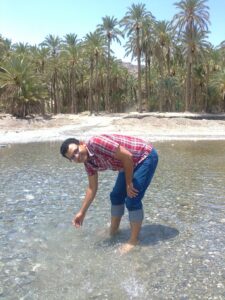
One of the significant meetings we conducted subsequently was a complex gathering with a unit of the Popular Defense and Popular Resistance Units “Basij” from the Sunnis residing in Zahedan City. These Sunnis are descendants of the Shahawazi tribe. During this meeting, we had the opportunity to meet with the tribe’s leader, Mr. Muhammad Reza Shahawazi, who graciously showed us the combat and regular training exercises of his division, facilitated by Iranian army officers. Mr. Shahawazi also shared with us the pivotal role played by the Sunni Shahozi tribe in combating terrorism, particularly the Al-Riki terrorist gang of Pakistani origin. He highlighted the sacrifices made by Colonel Al-Shoushtari, who was martyred along with many of his Sunni family members and relatives during the fight against terrorism and drug smuggling. Mr. Shahawazi firmly believes that Sunnis are entitled to all their rights as first-class citizens, and he emphasized the importance of the state’s attentive approach in safeguarding the country’s eastern borders.
On Friday, following a wait of approximately three days, the anticipated meeting occurred with Sheikh Mawlawi/Abdul Hamid Hassan – a renowned figure and the most prominent Sunni sheik in Iran. Sheikh Mawlawi serves as the Chairman of the Board of Directors and Director General of Dar Al-Ulum College in Zahedan, which is one of the largest Sunni seminaries in Iran. He confirmed that prior to the Islamic Revolution, the number of students studying in the seminary was limited. However, after the revolution, there was a significant increase in enrollment, with many students coming from neighboring countries such as Afghanistan, Pakistan, and India to pursue their studies. Additionally, the number of Afghan students increased following the American strikes in 2001. When asked about the sources of funding, Sheikh Mawlawi acknowledged personal efforts, donations, zakat allocations, and support from philanthropists. The seminary curriculum includes the teaching of Islamic subjects such as hadith, interpretation, and advocacy by Sunni doctrine. Furthermore, students also study other disciplines such as philosophy, logic, rhetoric, and the memorization of the Qur’an. It is worth mentioning that Sheikh Abdul Hamid holds the position of permanent Friday imam in Zahedan and serves as the mufti in the province. He was also involved in overseeing the construction of a large mosque named “Ana Sophia,” which bears a resemblance to the mosque of the same name in Istanbul. Regarding the issues faced by Sunnis, Sheikh Mawlawi admitted that he discussed them with former President Rouhani after he assumed office and presented them to him at the time. He acknowledged that if there are any problems faced by Sunnis, they can be resolved through rational dialogue between the Sunni and Shiite communities. He mentioned that the Sunni population in Iran amounts to approximately 15 million citizens. Concerning the challenges faced by the Islamic world, he also recognized that these issues can be addressed through constructive dialogue among all parties, particularly in countries like Egypt and Syria. In conclusion, he offered prayers for President Rouhani’s success in his position, as he was one of his supporters during the elections, with the Baloch people voting overwhelmingly in his favor.
The following morning, we departed for a different destination to meet a member of the Al-Riki family in the town of Johnabad – Mr. Bashir Ahmed Al-Riki, who is one of his cousins and shares a strong bond with him. It is worth noting that this family has a long-standing history in both Pakistan and Iran since the time of the Safavid Shah. Reiki and its practices have no connection to the family. Unfortunately, the allure of Western temptations and financial support from America, as well as a neighboring Gulf country, played a role in their actions. Additionally, the desire for fame and recognition, coupled with their Sunni beliefs, led them to disregard any differences between themselves and the Shiites.
Subsequently, we proceeded to Iran Shahr, where we visited the house where the current leader, Mr. Ali Khamenei, was once exiled. We captured photographs of the prominent landmarks within this town or city, which requires greater attention from the government and local administration of the province. Our accommodation for the night was arranged with one of the Sunni sheiks residing in Iran Shahr.
Following our stay, we continued our journey towards Nakashahr en route to the port of Chabahar, located in the southern region of Sistan and Baluchestan. Along the way, we documented a dam constructed by President Ahmadinejad to manage the seasonal torrents that occur in this desert region, ensuring the preservation and protection of water resources. Despite its arid nature, this region boasts springs, and wells, and is renowned for cultivating the finest Iranian dates. We captured images of one of the date farms as we made our way to Chabahar.
Chabahar, a coastal city situated on the Oman Sea, is known for its picturesque coastlines and small seaport. It has been designated as a free zone to promote trade and investments. The city boasts a thriving fishing industry, with a renowned fish market offering the finest selection of fish in Iran. The majority of Chabahar’s residents are Sunnis, comprising fishermen, merchants, and self-employed individuals.
During our visit, we had the opportunity to meet Islam Tia, a young judge with a master’s degree in law, who has been serving in the Chabahar court for the past eight years. In his role, he prioritizes justice and fairness, disregarding the sectarian background of any citizen, be it Sunni, Shiite, Muslim, or non-Muslim. He actively engages in resolving conflicts peacefully and amicably among the city’s inhabitants.
We also had the pleasure of meeting a Sunni businessman and his son, who works as an agent for an international Japanese car company. The businessman shared that there are no tensions between Sunnis and Shiites in Chabahar. Through his hard work and with the support of the government, he has become one of the prominent businessmen in the city. The establishment of Chabahar Port as a free zone has further encouraged international companies to trust and collaborate with local businesses. They expressed their hope for the city to continue growing and expanding.
Lastly, we observed that the recent dispute between Iran and Pakistan, two sister countries in the Islamic world, was swiftly resolved. Both sides demonstrated a commitment to addressing the issue and listened to each other’s concerns. Their united goal was to combat extremist and terrorist activities driven by a Zionist-American agenda. Both nations recognized the pressing matter of the “Palestinian issue”, the ongoing oppressive actions and genocide against their fellow Palestinians in occupied Palestine by the Zionist entity, America, and Britain.

